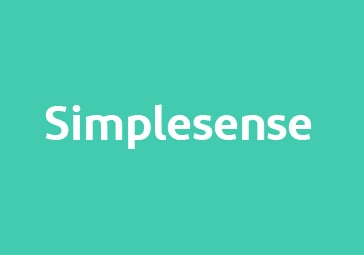By joining OPEN Imperative and conducting a pay audit (a membership benefit), Incorta nearly closed its gender wage gap in a year
How do we close a gender pay gap that has barely budged in 20 years? While landmark pay transparency laws are a huge leap forward, it will take purposeful action from employers to operationalize pay equity.
That’s why we’re shining a light on Incorta, a founding member of OPEN Imperative (Organization for Pay Equity Now), a coalition of 370 leaders (and counting!) that formed in 2022 with a moonshot goal of ending pay inequity at their organizations by 2027.
Whereas working women in the U.S. earn 84 cents for every dollar earned by men, according to recent data, female employees of Incorta earn 95 cents for every male dollar.
Sheri Kelleher, an OpenComp customer and Incorta’s senior vice president of people success, says “joining OPEN Imperative lit a fire under us to put pay equity at the forefront of everything we do.”
Since joining OPEN Imperative, Incorta can:
- Regularly measure pay gaps with precision
- Identify with more clarity what process they must create or adjust to prevent inequities
- Have more effective conversations with its CEO and stakeholders about compensation and the effects on pay equity
- Equip recruiters and managers to implement and explain pay policies to prevent pay gaps and win trust from employees and candidates
Here’s a closer look at how Incorta prioritized pay equity.
A pay audit reveals pay inequities
After more than a year of massive hiring in 2021, Incorta wanted to see the impact of 170% growth on pay equity. So Kelleher requested a complimentary pay equity audit in 2022 from OPEN Imperative.
To Kelleher’s surprise, Incorta’s pay equity analysis revealed an 80% pay gap, looking at factors such as age, experience, job levels, departments, and more.
“We thought there’s no way,” she says. “For the past year, we’d been very deliberate with hiring and pay equity. Not just gender pay equity, but people pay equity.”
To learn why the gap was larger than expected, Incorta launched a full data integrity initiative to find anomalies and outliers. This also included working closely with managers to validate and correct employees’ job levels. After adjustments were made, a subsequent analysis revealed 95% pay equity.
Changing the conversation at the executive table
With the resources and knowledge gained through OPEN Imperative, Kelleher says HR can show up at the executive table with the same authority as engineering and revenue leaders at a time when pay equity is a business imperative and CEOs are beginning to view HR as a strategic partner, rather than just an enforcer of rules.
“The pay equity report was one of the best things I’ve ever brought to my CEO,” says Kelleher. “It opened the door for conversation and for him to understand, and even slow down, the response to compensation changes. It highlighted areas that needed immediate focus, and allowed us to create a plan to get to 100% pay equity.”
And with data, pay equity becomes about more than gender.
“I’m not a champion for women simply because I’m a woman,” she says. “I’m a champion for equal pay because I’m a person. That report was a game-changer for me.”
Following are four steps that Sheri recommends for all companies that value pay equity.
Step 1: prioritize data over fear, and run a pay audit
Kelleher says she understands that pay equity audits can be intimidating, but encourages others to take the step, since most employers have pay inequities to address.
“Don’t be afraid of results,” she says. “If you have an outlier, that's OK. You just need to identify it, understand it, and then have a path to fix it. Don’t be afraid to say, ‘We have a problem with this group and we need to look at it.’ That’s just fair.”
Step 2: Prioritize long-term scalability
With its pay equity report, Incorta is better able to spot pay gaps and make corrections that don’t cause future problems.
Says Kelleher, “ we realized it’s most important to be consistently diligent with pay equity.” This is especially true for hiring and promotions.
“It's easy when you're looking at an engineer,” she says. “It's a bit more challenging when you're looking at unique roles, particularly in a start-up. With limited resources, we tend to wear many hats combining job families. One size doesn’t fit all with compensation, so we do a deep dive on those roles.”
When Incorta finds anomalies in pay, it takes a long view, making immediate corrections for obvious outliers, such as a top performer earning below the 50th percentile.
“It’s not about knee-jerk reactions,” says Kelleher. “It’s looking at compensation holistically. It’s about process and doing something sustainable that doesn't cause problems down the line.”
Step 3: Lean into manager & recruiter training and activation
Because pay initiatives succeed or fail based on how they’re implemented, Incorta’s managers and recruiters receive training on how to use salary ranges to set pay, rather than bias-prone practices which tend to lead to favoritism.
Managers also get talking points and FAQs that help them explain to employees why the company pays the way it does, especially since most employees come to their managers with questions about pay.
“Telling people how data is aggregated and what it means is also a jumping off point for employee training,” says Kelleher. “We can support this with our compensation philosophy, our job leveling and grading, and pay bands. This is how we’re going to be transparent.”
Step 4: Share lessons and success
Although Incorta has made big strides toward closing its pay gap for good, Kelleher says she’s looking forward to more learning and growing with OPEN Imperative.
“It just feels good to talk about something that is so necessary and positive with people who share the same passion,” she says. “If I hadn’t been part of OPEN Imperative, I would still say things like ‘It’s not fair.’ I'd be right, but I wouldn’t have had any information to back it up or know how to take action.”
Join OPEN Imperative
As Incorta’s story shows, pay equity is a journey. OPEN Imperative is there to support you whether you’re just getting started or already have best practices in place.
Members get a robust community, curated programs, and live chats about topics ranging from pay transparency legislation to common pay equity roadblocks.
They also get essential tools — like step-by-step playbooks and comprehensive pay equity reports — that many organizations don’t provide. According to the 2023 State of Pay Equity, 70% of respondents say they lack resources to address pay equity — up 24% from the previous year. Why? Most CEOs don’t understand what it takes to truly operationalize pay equity. The same report found that while more than half (53%) of CEOs say they do an excellent job at pay equity, just 40% of HR leaders rank their pay equity work excellent. OPEN Imperative gives members the tools to fill the gaps.
Ready to get started?
To learn more from Sheri Kelleher:
- Listen to Sheri on the High Growth Matters Podcast talk about leading teams through market shifts.
- Listen to Sheri discuss pay data reporting during OPEN Summit 2023.
- Read about how Incorta expertly manages cash and runway as a global company.
- Connect with Sheri through OPEN Imperative.
Try OpenComp's compensation software for free.
Emily Sweet is VP of Social Impact and OPEN Imperative Lead at OpenComp. She writes about topics including pay equity and diversity, equity & inclusion (DEI). A board member of the National Council of Jewish Women, Emily is a veteran philanthropic leader and policy advisor with more than 20 years experience advancing bold solutions to big problems that drive impact and inspire collective action. Connect with Emily on LinkedIn.



